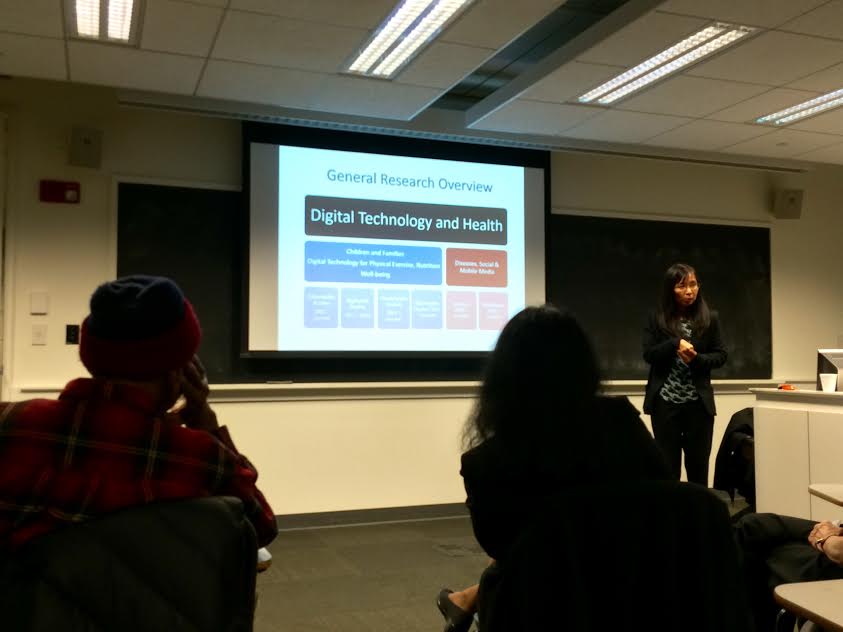Also on Wednesday, the Bryn Mawr College Department of Sociology hosted a public lecture presented by May Lwin, Associate Professor and Associate Dean of the College of Humanities, Arts, and Social Sciences at Nanyang Technological University, Singapore. Her research on “Sociological Observations of a Communications Revolution: Introducing Mobile Telephones in a Developing South East Asian Nation” focused on cellphone usage in Myanmar. May Lwin was born in Myanmar before moving to Singapore during her childhood. She graduated with honors from Bryn Mawr with a B.A. in sociology in 1986.
Lwin first introduced the political, economic, and social conditions of Myanmar. Myanmar has been ruled under a military junta since 1965. Telephone diffusion was low because of military dictatorship, but the junta decided to allow the sale of telephones in order to satisfy the people and further legitimize the regime. In the early 2010s, the Myanmar government adopted new measures to achieve a “middle income status” by 2030. This ushered in skyrocketing demands for phones and SIM cards.
Lwin explained the effects of the introduction of new technology through comparing diffusion of innovation sociology theory (Rogers 1960) to actual adoption rates released by a Harvard study. The effects of this digital boom can be classified under multiple categories: digital imagination, telephonic identity, gender gaps, religion, Westernization, and loss of innocence.
Should monks be allowed to use cell phones?
Why is machinery associated with masculinity and how is this affecting the gender gap in phone ownership?
How does a cell phone influence the jobs and lives of entrepreneurs, fishermen, trishaw drivers, etc.?
Is there a black market for cellphones? How does the government address this?
Through methods of surveying certain areas of Myanmar, Lwin and her team found the Myanmar citizens’ answers to the above questions. I am interested in the applications of Lwin’s research to public health in Myanmar as this is Lwin’s concentration.
